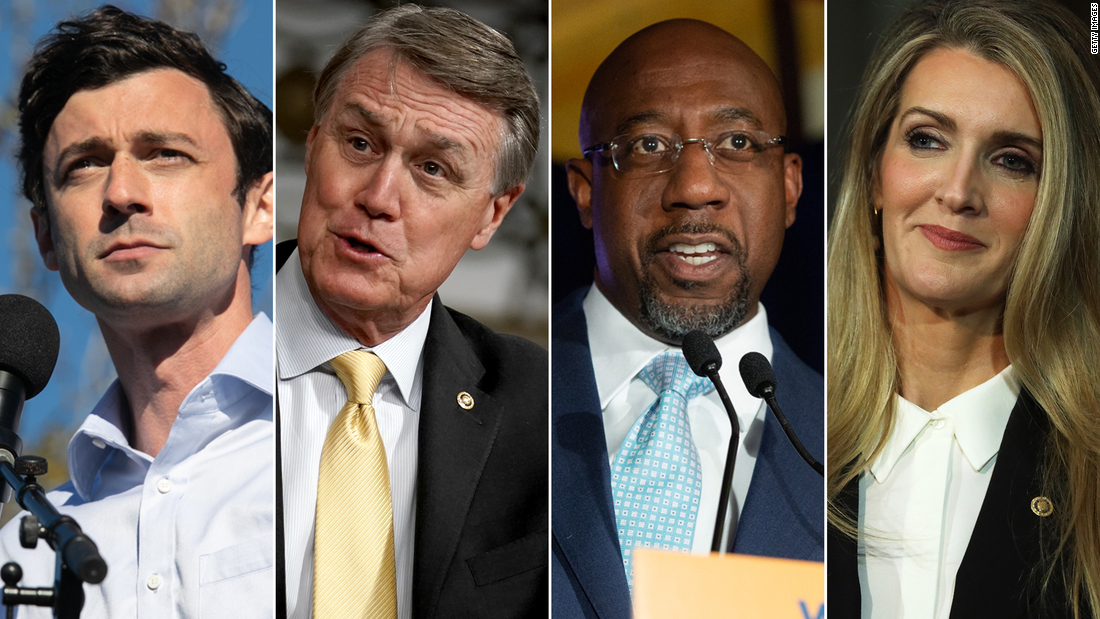Since then, Republicans have run some additional misleading ads targeting two Democratic candidates, Raphael Warnock and Jon Ossoff. Here is an analysis of two of those ads.
Republican Senator Kelly Loeffler made a concerted effort to portray Warnock, the senior pastor of Atlanta’s Ebenezer Baptist Church, as “radical” and “dangerous”.
Facts first: All of these Loeffler ads deceptively take Warnock’s observation out of context. He was advocating the release of people arrested for crimes against marijuana in particular, not a general release of people arrested for all types of crimes.
Here is what he said: “Marijuana is seen as an illegal substance. It is a terrible irony, and we feel this, that right now in America, there are some people who are becoming billionaires for selling the same things that imprison our children in all over America. Where’s the justice? It’s not enough to decriminalize marijuana. Someone has to open the prisons and let our kids go. “
Loeffler is free to criticize Warnock for defending the release of people imprisoned for marijuana offenses. But the ads created the impression that he was advocating some kind of mass amnesty for all incarcerated criminals. He was not.
“Reverend Warnock supports efforts to eliminate the records of those convicted of non-violent cannabis-related crimes and has worked in the community to help eliminate the records so that Georgians who have served their sentence can seek job and housing opportunities without discrimination,” the Warnock campaign said in an email to CNN.
Ossoff and a Senate committee
The ad uses Ossoff’s review to suggest that he has a “scandal in China”, claiming that the Democrat was “paid for by the Chinese Communist government through a media company”. The ad insinuates that the payment was suspect, asking pointedly: “Why does China really pay Ossoff? ”
There is no evidence for the ad’s suggestion that the Chinese government paid Ossoff for nefarious reasons. Ossoff’s campaign says his company received about $ 1,000 in royalties because Hong Kong media company PCCW aired two of its ISIS war crimes investigations.
We cannot independently corroborate Ossoff’s campaign explanation of the reason for payment, nor the total amount, but neither Purdue’s campaign nor anyone else provided a reliable alternative explanation or alternative value. And a modest fee to license documentaries – for a media entrepreneur, from a media company in which the Chinese government is not the majority owner – would certainly not be enough to justify Ossoff’s image in the ad as a suspicious China puppet.
In addition, Ossoff’s campaign says that the payment of about $ 1,000 was actually made to Ossoff’s company, not by the Hong Kong company itself, but by a third-party media production and distribution company, Sky Vision, which licensed the investigations for the Hong Kong company (as well as for other companies worldwide).
The campaign says that Ossoff listed PCCW itself on its amended disclosure forms because it wanted to be transparent about who was broadcasting his company’s productions. The campaign says that transparency is also the reason he listed the PCCW on the forms, although the payment was below the $ 5,000 threshold for which reporting is required.
